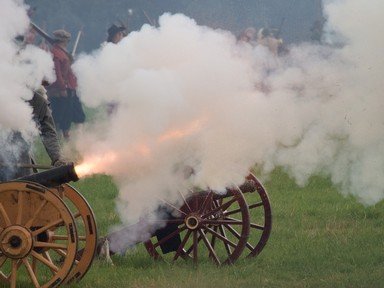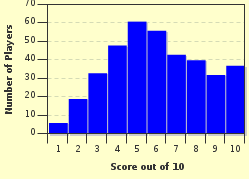Quiz Answer Key and Fun Facts
1. There were three major battles on British soil in 1066. Hastings was the final one, Stamford Bridge was the second. Where was the first?
2. In the year 1405 there was, reputedly, a battle on British soil which is now called the Battle of Stalling Down. In which modern county is Stalling Down?
3. In the year 1513 the largest battle, in terms of men deployed, between England and Scotland took place. By what name is this battle known?
4. For thirty years in the 15th century the Wars of the Roses raged on British soil. Bosworth Field was the site of the last real battle, but where was the first?
5. A decisive battle between England and Scotland took place in the year 1298. It was the battle where the forces of William Wallace were crushed. Where did it happen?
6. Bosworth Field is one of the most famous battles fought on British soil. What was the main reason for King Richard III losing both the battle and his life?
7. Which British battle in July 1685 later became known as 'The Pitchfork Rebellion'?
8. The English Civil War Battle of Marston Moor, 1644, brought to prominence one of the most famous names in English history. Can you name him?
9. One of the shortest battles on British soil took place at Prestonpans in Scotland. Approximately how long did it last?
10. The last major battle to take place on British soil happened in 1746. It marked the end of the Jacobite rebellion in Scotland. Where did this final battle take place?
Source: Author
romeomikegolf
This quiz was reviewed by FunTrivia editor
bloomsby before going online.
Any errors found in FunTrivia content are routinely corrected through our feedback system.


